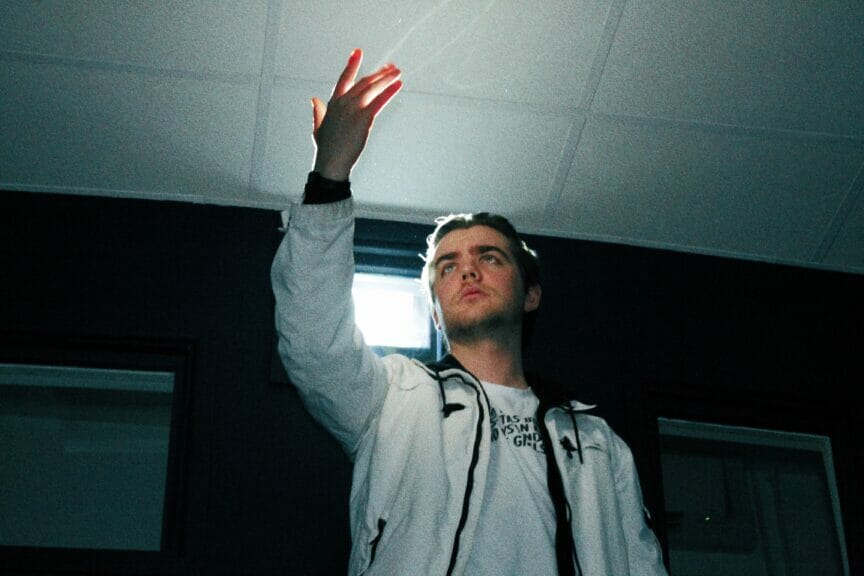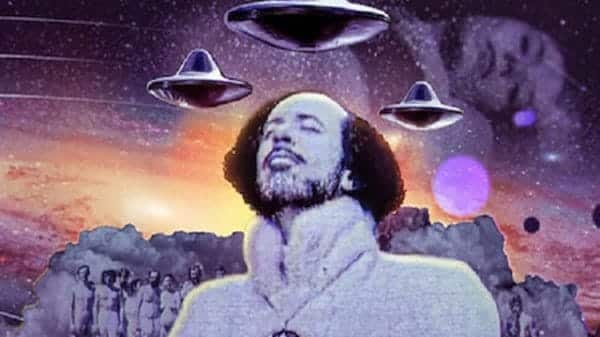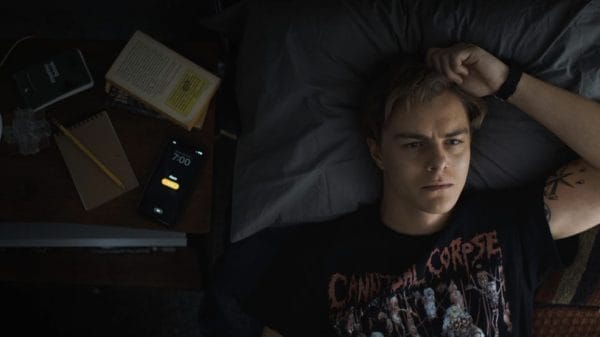20-year-old independent film director Cai Barnard-Dadds talks about directing his first feature film, relationships, and the Safdie Brothers.
Born and Raised
“I’m Cai, I direct the films”. This is how 20-year-old, Swansea-born independent director and film student Cai Barnard-Dadds elected to introduce himself for this interview, alongside an awkward chuckle and a devious smile. In a striking white jacket and a t-shirt with a statement to make (much like the man who wears it), it was clear he was here to make an impression, whether he realized it yet or not.
Inside a meeting room inside his university of choice, an unexpected formality was granted to this interview as he sat at the opposite end of a meeting table facing me, despite this being someone who I’ve called my friend for many years now. I say ‘unexpected’ because Cai had booked a specific studio to conduct this interview in, and yet had lost it, so a light bit of improvisation was required instead.
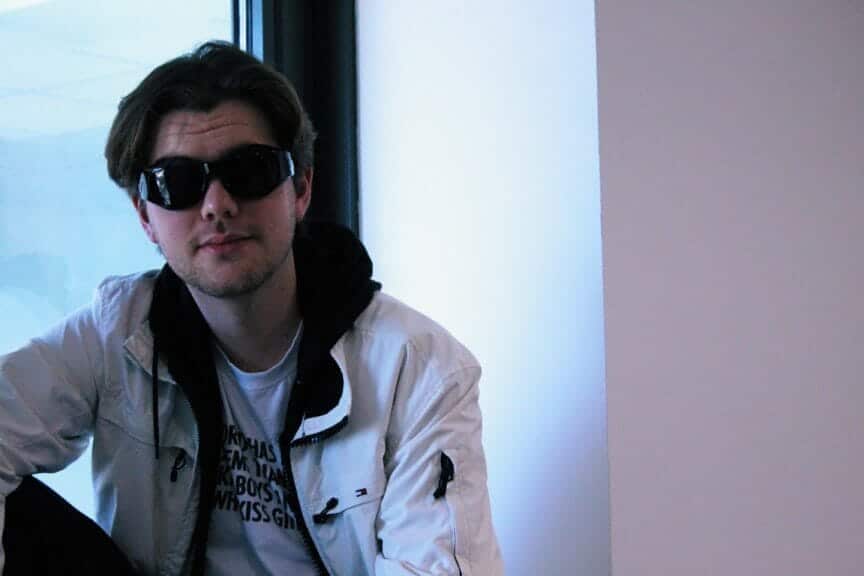
A Real Good Time
Not lingering on personal introduction, Cai soon started talking about films, namely what he wishes to achieve with his own: “I just wanna make these stories that feel very familiar to people, very friendly, even if the subject matter is sort of distressing”. The idea of familiarity and comfort being granted by his movies was a reoccurring theme: “I want it [characters] to feel like it’s a hand on your shoulder going ‘it’s okay'”.
Whilst he had held a light air of frustration at the start of the interview due to the room he booked being swiped from under his nose, once I pressed him for his favorite films and inspirations, his eyes quickly lit up. He almost immediately answered: “Good Time, because Josh and Bennie Safdie [the directors] just feel like masters”. Remember those names, as they’ll come up a lot…
For the uninitiated, the 2017 crime thriller Good Time follows lead actor Robert Pattinson’s (who Cai seems to hold a fondness for) character trying to stumble his way out of a botched robbery attempt: “It’s my comfort film… because I have anxiety, somehow it feels comforting to me?’ It’s a steady course of anxiety”. The Safdie Bros., who directed the film, is indeed famous for evoking anxious storylines.
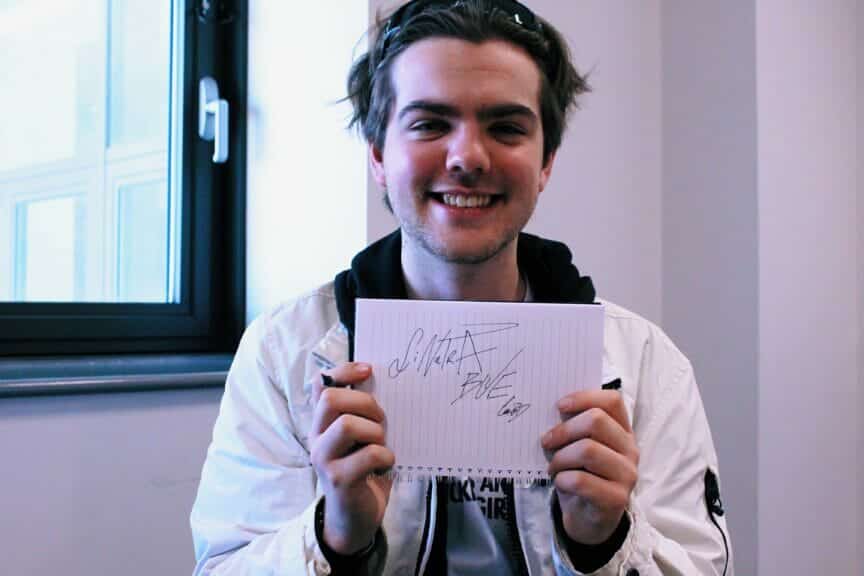
A Taste Of Everything
Cai was also quick to praise foreign cinema as well, stating, “You need an outside perspective and a perspective of different cultures”, clearly saddened that a lot of mainstream audiences often fail to expose themselves to foreign films, despite them often receiving some of the highest praise in the industry.
In particular, Cai wanted to draw attention to Taiwanese cinema, saying with evident passion: “That’s where I draw a lot of my inspiration emotionally from because Taiwanese films do this beautiful thing where… you know, the point of American romance films is they have sex and get married. The point of Taiwanese films is that they kiss, and that’s what they’re building up to.”
However, he himself holds little interest in making films overseas as he went on to say: “We’ve [the welsh] got a very rich myth, a very rich history, so let’s get that on screen for the future generation… for that, we need people who are pariahs for the next generation”. He’s clearly a man who loves his home, as many of us Welsh folk do, and his passion for the country and culture is rather inspiring.
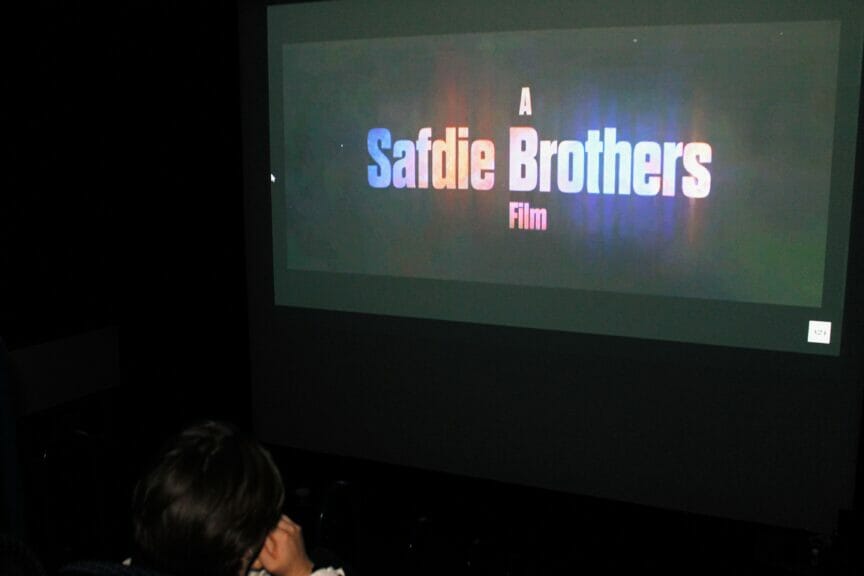
Super Safdie Bros.
I pushed Cai to speak more on the Safdie Bros. as I know he holds a large amount of love for them: “I spent second-year lockdown… watching loads of Safdie bros. films… Seeing how they evolve from their student films”. This section has been notably trimmed down as Cai enters a sort of giddy excitement whenever he speaks on this directing duo, but the passion and clear admiration is rather beautiful.
“What’s important when you’re making films when you’re making anything… is to try and find these people where you can say they got there, they’re in this big place and trace them back to you, so you’ve got a hero… so you can go like ‘I could be them’. It’s important to find those because that’s what keeps you going… that’s what’s important… they taught me about personal stories.”
“As much as I love Scorsese” (he catches himself) “No, wait, I don’t love Scorsese…” (a controversial take from Cai there) “As much as I love Aaron Sorkin and David Fincher, they were in the industry when they were born, I don’t have that, but if you can find someone who is somewhat comparable to you, that makes the reality of this crazy dream easier to get to”.
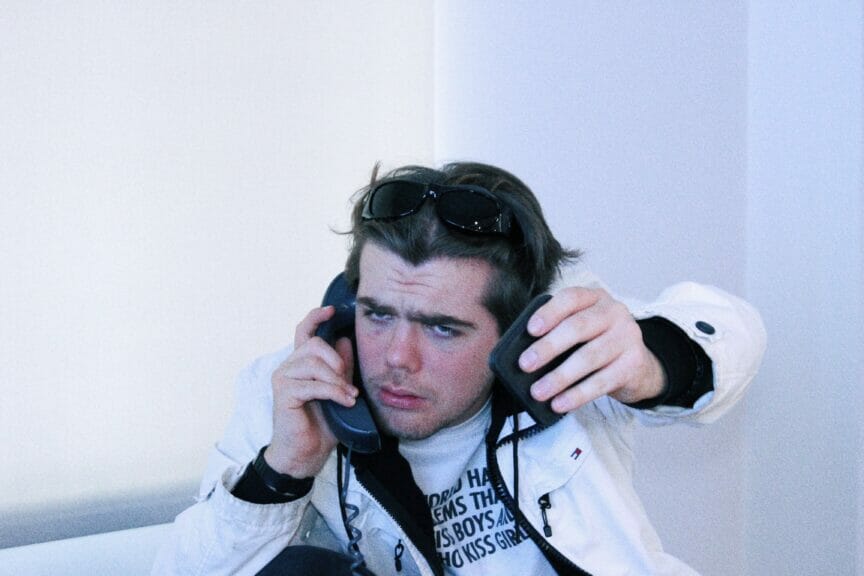
No Marty? No Problem
When I prodded him about films he doesn’t like, Cai’s answers were a lot slower, clearly showing me he thinks a lot more about what he likes than what he doesn’t. Whilst I’d call him a wonderfully positive mind for this, once he opens up his Letterboxd film account and checks for his lowest-rated films, some strong criticism quickly reveals itself.
“Taxi driver, half a star. Terrible. Do not even try and justify that shit to me. It’s a film… that doesn’t take a side, should I like him or not, and leaves it up to the audience, but that’s irresponsible… you have to give them enough leeway to see what they like, not enough for them to be like, ‘oh, maybe I should aspire to be like Travis Bickle’… that can be damaging.”
It should be noted that whilst it may be hard to believe it, Cai doesn’t say this with a hint of cruelty or pretention in his voice: “You want a medium of art to lack pretention… enough where you can be like ‘I can fit into this'”. He simply believes that “A film should be like ‘here’s what we think, here’s what our lens is… how do you feel about that?'”.
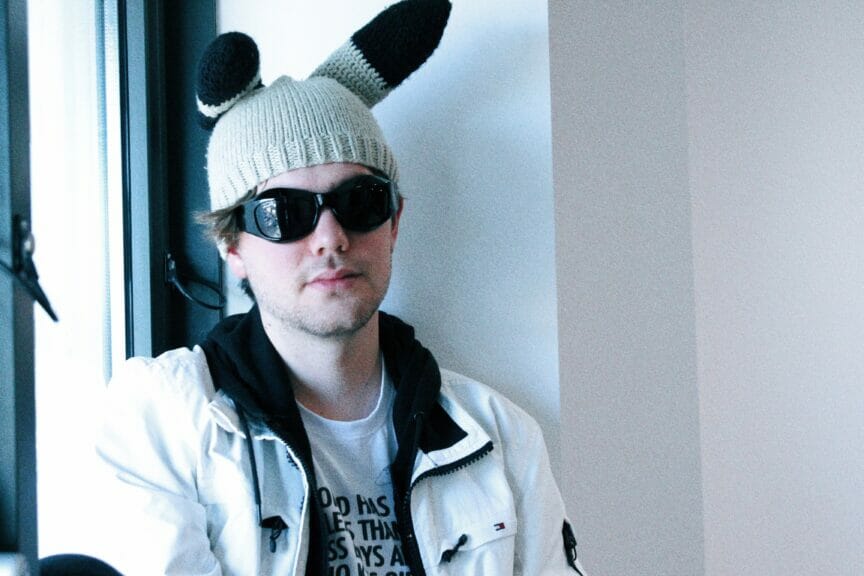
A Case Of The Sinatra Blues
We proceeded to talk about his recent feature directorial debut, Sinatra Blue, which I had the tremendous honor of seeing at its premiere earlier this year. “Sinatra Blue is about Noah who, after a recent breakup, finds his ex-girlfriend’s old iPod, listens to it one night, and finds that by listening to songs, he goes back to when he first heard them, so he hatches a plan to go back to different points in their relationship to try and fix all this.”
While it was a battle to receive that summary as Cai struggled to summarise his pride and joy into a concise description, he soon more aptly added, “I’d label it as a breakup film… you can be with a person that is perfect, but maybe they’re just not perfect for you”. This was followed by a somewhat absent-minded yet beautiful rant on what break-ups mean to him, which I shan’t share here for privacy’s sake.
“Sinatra Blue is about the romanticization of self and other people…Romanticisation often ignores the ugly parts we don’t wanna face… It’s about having a person that’s at this level” (he holds his hand high in an exaggerated manner) “and bringing them down”. “Romance is what I want to make films about… playing with the idea of romance” is his ultimate conclusion on this matter.
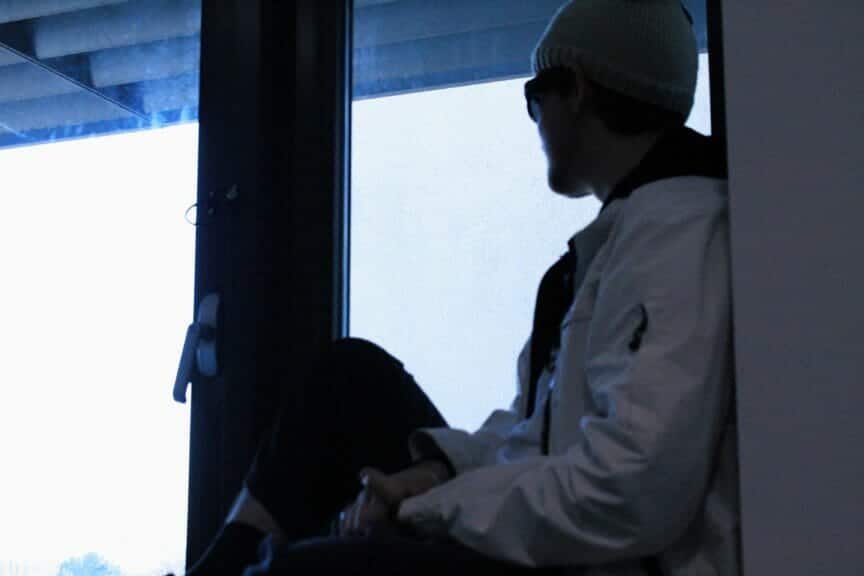
The Good Old Days
When asked what he enjoys about independent directing, Cai said, “You decide the restrictions and the limitations” (his voice lowers slightly with an air of sadness) “sometimes they’re financially influenced, but… you know”. He shrugs off the doubt, and the passion re-enters his eyes. “It’s about inspiring people enough that they’re like ‘yeah I wanna get behind this'” which was necessary due to crowdfunding.
He also clearly loved his crew, stating “that you can call them down to travel with you, that they want to do that… that’s amazing”. He also spoke of the actor’s talent, stating, “When you’re filming with them, they’re bringing their own past relationship traumas… they’re informing the story…People will be like ‘Oh I’ve had that emotion before, I’ve looked like that’, and that’s a power that actors have”.
“It was a joy to make it with Ben [the film’s co-creator/Cai’s childhood friend]… I don’t think we would be making films without each other. We’ve inspired each other… I don’t like to compete with him” (he chuckles reminiscently) “To go from school… to have that journey with him… I don’t think we even said anything to each other; I think we both just thought ‘WOW, we’ve come this far'”. He stared for a moment like he had more to say, but perhaps it wasn’t me he wanted to say it to…
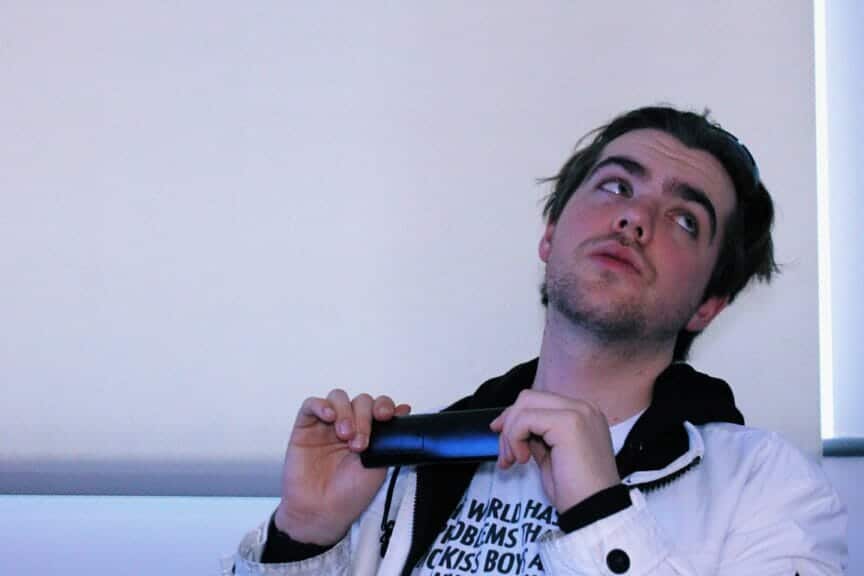
Future Imperfect
Of course, it’s not all fond memories and smooth sailing: “It’s all [the pressure] on your back and if it falls, all these people, this world that you’ve made with the cast and crew, are all gonna fall down with you… That’s the importance of having the crew and other people there, so that when you fall they can sort of pick you back up and get you to the place where you are all holding the world up, not just you”.
The film industry itself also presents a lot of pressure, especially to a film student: “It’s scary,” he says with a grin, clearly trying to mask a genuine fear. “I don’t like when people talk about filmmaking and how they got there without the element of luck about it… There are a lot of people who I’ve seen fall the wayside who were really good at filmmaking but just hadn’t had their stuff looked at… I could get discovered at 50, I could get discovered at 21, I’m just happy I get to make films along the way.”
With arts funding in the UK also in talks to be cut, that presents its own threat: “People are scared they’ll have to settle for less… So I want to make a film about that. If that’s my final statement on everything, so be it”. He ends the interview with a glint of anger in his eyes, perhaps a wish that the future he desires could be more accessible to everyone, but in that glint, there’s also hope for the man who “directs the films”.


